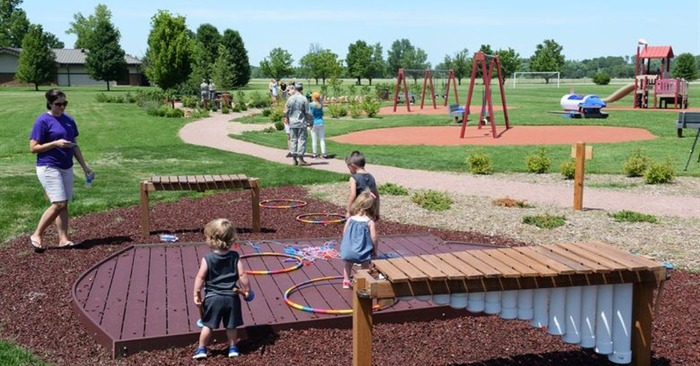Planning a trip to the USA? Get ready for an adventure filled with diverse landscapes, vibrant cities, and unique cultural experiences. From the bustling streets of New York to the sun-soaked beaches of California, the USA offers something for every traveler.
Before you go on your American journey, there are crucial things you need to know. These insights will help you navigate the complexities of this vast country, ensuring a smoother and more enjoyable visit. From practical tips to cultural nuances, we’ve got you covered.
This comprehensive guide will explore 16 essential aspects of visiting the USA. Whether you’re a first-time visitor or a seasoned traveler, these tips will enhance your experience and help you make the most of your USA adventure. Before touching down on USA soil, let’s dive in and discover what you need to know.
Also, read this blog:https://bagispack.com/complete-guide-to-mexico-lonely-planet-north-america/
Transportation Tips
Navigating the USA’s vast landscape requires careful planning. Public transportation varies widely between cities, with some offering extensive networks while others rely heavily on cars. Research your destinations to understand the best travel options, whether it’s renting a car, using ride-sharing services, or relying on public transit.
Consider purchasing transit passes for longer stays in major cities. For intercity travel, explore options like domestic flights, trains, or long-distance buses. Remember that distances between attractions can be significant, so factor in travel time when planning your itinerary. Always have a backup transportation plan.
Balancing Your Itinerary
Balancing your itinerary involves mixing sightseeing, relaxation, and personal interests. Allocate time for must-see attractions while allowing flexibility for spontaneous activities and downtime, ensuring a well-rounded and enjoyable travel experience without feeling rushed.
Ideal Trip Duration

When planning your USA visit, aim for at least two weeks to experience the diversity of the USA. This duration allows you to explore multiple cities or regions, giving you a taste of America’s varied landscapes and cultures. Factor in travel time between destinations and potential jet lag recovery.
For a more comprehensive experience, consider extending your trip to three or four weeks. This extra time enables deeper exploration of specific areas, engaging in local activities, and discovering off-the-beaten-path attractions. Remember, the USA’s vastness means there’s always more to see and do.
Also, read this blog: https://bagispack.com/tips-for-all-first-timers-traveling-to-mexico-city/
Choosing Your Destination
Selecting the right destination involves considering factors like budget, interests, and climate. Researching various options and aligning them with your travel goals ensures a fulfilling experience. Prioritize destinations that offer the activities and experiences you desire for an enjoyable trip.
Navigating Reservations and Schedules
Booking in advance is crucial for a smooth USA trip. Popular attractions, national parks, and cultural institutions often require reservations. Research opening hours, seasonal closures, and ticket availability online. Consider purchasing city passes for multiple attractions to save money and time.
Plan your visits strategically to avoid crowds. Weekdays are generally less busy at major sites, while weekends offer more events and nightlife. Allow ample time between activities, accounting for travel and potential delays. Use online booking systems for convenience and to secure your preferred time slots.
National Parks and Outdoor Attractions
National parks and outdoor attractions offer breathtaking natural beauty and recreational opportunities. From hiking trails to scenic vistas, these destinations provide a chance to explore diverse landscapes and wildlife while enjoying outdoor adventures and peaceful retreats.
Packing Essentials
When preparing for a trip, packing essentials like clothing, toiletries, and important documents is crucial. Organizing items in advance ensures a stress-free experience. Consider the weather, destination, and activities to pack smartly, keeping your luggage light while having everything you need.
Don’t forget essentials like chargers, medications, and travel-sized toiletries. Packing versatile clothing and using packing cubes can save space and keep you organized. Being well-prepared with the right items will make your journey smoother and more enjoyable, no matter the destination.
Weather-Appropriate Clothing
Wearing weather-appropriate clothing ensures comfort and protection in varying conditions. Layering for cold weather and choosing breathable fabrics for heat can enhance your experience. Always check the forecast and pack accordingly to stay prepared for any weather.
Understanding American etiquette
American etiquette emphasizes politeness, punctuality, and respect for personal space. Common practices include greeting with a firm handshake, making eye contact, and saying “please” and “thank you.” Being on time and dressing appropriately for the occasion are also important aspects of social interactions.
In dining settings, it’s customary to tip service staff, usually around 15-20%. Engaging in small talk, especially in social or business settings, is a way to build rapport. Understanding and following these etiquette norms helps in making a positive impression and navigating social situations smoothly.
Greeting Customs
Greeting customs vary by culture, often including handshakes, bows, or verbal salutations. Understanding local practices and showing respect through appropriate greetings fosters positive interactions and demonstrates cultural awareness, enhancing both personal and professional relationships.
Public Facilities and Amenities

Public facilities like parks, libraries, and community centers provide essential services that enhance the quality of life. These spaces offer free or low-cost access to recreation, education, and social activities, making them valuable resources for all members of the community.
Amenities such as clean restrooms, seating areas, and Wi-Fi in public spaces contribute to comfort and convenience. Well-maintained facilities foster community engagement and provide safe, welcoming environments for relaxation and interaction. Access to these amenities plays a crucial role in supporting the well-being of individuals and families.
Restroom Availability
Restroom availability is crucial for comfort during outings. Ensure you’re aware of nearby facilities in public areas, especially in unfamiliar places. Planning and locating restrooms can prevent inconvenience and enhance the overall travel experience.
Financial Considerations
Financial considerations are crucial when planning for the future, whether it’s budgeting for daily expenses or saving for long-term goals. Understanding income, expenses, and investments helps in making informed decisions. Prioritizing financial health ensures stability and security in both personal and professional lives.
It’s important to assess risks, manage debt, and plan for emergencies. Regularly reviewing financial goals and adjusting plans as needed can prevent unforeseen financial challenges. By staying informed and proactive, individuals can navigate financial decisions with confidence and work towards achieving financial independence.
Tipping Culture
Tipping culture varies by region, with different expectations for service industries. Understanding local customs and recommended gratuity rates helps ensure appropriate tipping and shows appreciation for quality service, avoiding potential misunderstandings in diverse settings.
Cultural Sensitivity

Cultural sensitivity involves being aware of and respecting the diverse traditions, values, and practices of different cultures. It requires understanding that cultural norms vary and being open-minded when interacting with people from different backgrounds. This awareness fosters mutual respect and positive relationships.
Incorporating cultural sensitivity in daily interactions, workplaces, and travel helps avoid misunderstandings and promotes inclusivity. It’s essential to listen, ask questions respectfully, and be mindful of cultural differences. Practicing cultural sensitivity enhances communication and strengthens connections in our increasingly globalized world.
Native American Lands
Native American lands are historically and culturally significant to Indigenous tribes. Respecting these lands and understanding their heritage is crucial for honoring Native cultures, promoting cultural preservation, and supporting tribal sovereignty and rights.
Safety and Security
Safety and security are essential for maintaining peace of mind in daily life. Taking precautions like locking doors, using strong passwords, and staying aware of your surroundings helps protect against potential threats. These measures are vital for safeguarding personal well-being and property.
In public spaces, following safety guidelines and being vigilant can prevent accidents and crimes. It’s also important to stay informed about emergency procedures and have a plan in place for unexpected situations. Prioritizing safety and security ensures a safer environment for everyone.
General travel precautions
General travel precautions involve securing travel documents, safeguarding valuables, and staying informed about local safety guidelines. Keeping emergency contacts handy and monitoring health updates can help ensure a smooth and secure travel experience.
FAQ’s
What do I need to know before traveling to the USA?
Before traveling to the USA, understand visa requirements, health insurance needs, and customs regulations. Familiarize yourself with local laws, tipping culture, and transportation options. Research your destination’s weather, currency exchange rates, and cultural norms to ensure a smooth and enjoyable trip.
What do I need before entering the US?
Before entering the US, you’ll need a valid passport, an appropriate visa or ESTA authorization, and proof of onward travel. Ensure you have completed any required health declarations or vaccinations, and have customs and immigration documents ready for inspection upon arrival.
What are some questions to ask about America?
Ask about cultural norms, regional differences, and local customs in America. Inquire about tipping practices, public transportation options, and safety tips. Understanding healthcare, emergency contacts, and legal drinking ages is also important for navigating daily life and social interactions in the US.
What do you need to know about the United States?
The United States is culturally diverse, with varying customs and lifestyles across regions. It’s essential to understand the legal system, tipping practices, and healthcare. The country has vast landscapes, from cities to natural parks, and a strong emphasis on individualism and personal freedom.
Dos and don’ts in America?
Do respect personal space, tip service workers, and follow local laws. Don’t engage in loud or confrontational behavior or assume all Americans share the same views. Avoid discussing sensitive topics like politics or religion unless you’re sure it’s appropriate for the situation.
Conclusion
Traveling to the United States requires thoughtful preparation and cultural awareness. Understanding visa requirements, local customs, and safety precautions is essential for a smooth and enjoyable trip. Familiarize yourself with regional differences, tipping practices, and basic laws to navigate daily life effectively. Respecting cultural norms, such as personal space and appropriate social behavior, will help foster positive interactions. By planning and staying informed, you can fully enjoy the diverse experiences the U.S. offers, from bustling cities to stunning natural landscapes, ensuring a memorable and enriching journey.

BagisPack.com: Your ultimate travel companion. Explore expert travel tips, packing guides, and destination insights. Empowering adventurers with essential advice for seamless journeys around the globe.








